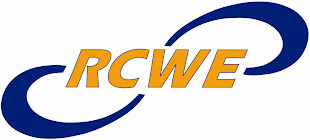Research to Understand and Inform Interventions that Promote the Research Careers of Students in Biomedical and Behavioral Sciences
Posted by
Abby Skinner
0
comments
Estimated Total Program Funding: $2,400,000
Award Ceiling: $250,000
CFDA Number(s): 93.859
This Funding Opportunity Announcement (FOA) issued by the National Institute of General Medical Sciences (NIGMS), National Institutes of Health (NIH) solicits applications that propose research designed to test assumptions and hypotheses regarding social and behavioral factors with the aim of advising and guiding the design of potential interventions intended to increase interest, motivation and preparedness for careers in biomedical and behavioral research. NIGMS is particularly interested in those interventions that are specifically designed to increase the number of students from underrepresented groups entering careers in these disciplines. The proposed research need not be restricted to underrepresented students. Comparative research that analyzes the experience of all groups in order to place that of underrepresented students in context and to learn whether and how interventions should be tailored to make more underrepresented students successful in biomedical careers may well be particularly illuminating and is, therefore, encouraged. Mechanism of Support. This FOA will utilize the NIH Research Project Grant (R01) award mechanism. Funds Available and Anticipated Number of Awards. The total amount to be awarded is approximately $2.4 million (total costs). Approximately 6-8 awards are anticipated. Awards issued under this FOA are contingent upon the availability of funds and the submission of a sufficient number of meritorious applications.
HHS Awards $159.1 Million to Support Health Care Workforce Training
Posted by
Abby Skinner
0
comments
[From HHS.gov] HHS Secretary Kathleen Sebelius announced $159.1 million in grants to health care workforce training programs. These grants build on the multimillion dollar investments made under the Affordable Care Act and Recovery Act to strengthen and grow our primary care workforce. The grants will target three types of programs: Nursing Workforce Development programs; interdisciplinary geriatric education and training programs; and Centers of Excellence programs for underrepresented minority students.
“We cannot build a healthier America if our country continues to face a growing health professions shortage,” said Secretary Sebelius. “A well-trained, educated and diverse workforce is critical to meeting future health care demands, and to reforming the nation’s health care system.”
“These grants target key workforce needs,” said Health Resources and Services Administration (HRSA) Administrator Mary K. Wakefield, Ph.D., R.N. “In addition to training new health care workers, these grants will support efforts to better prepare health care workers to care for our diverse and aging population, improving health care quality for all Americans.”
State by state charts of the grant awards are available at http://www.hhs.gov/news/press/2010pres/08/state_charts.html. For more information on HRSA’s health professions programs, go to http://bhpr.hrsa.gov/




 A nonprofit 501(c)3 organization, the RCWE’s mission is to connect people with jobs through collaborative workforce development efforts and strong partnerships with economic development, business, education, and government sectors in the Northwest Pennsylvania region.
A nonprofit 501(c)3 organization, the RCWE’s mission is to connect people with jobs through collaborative workforce development efforts and strong partnerships with economic development, business, education, and government sectors in the Northwest Pennsylvania region.